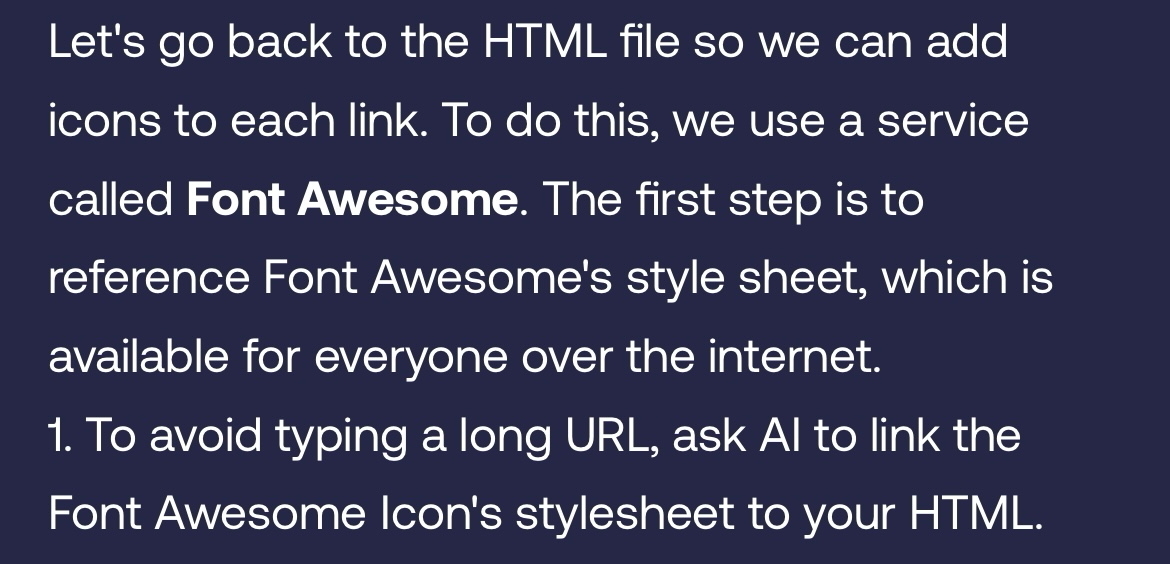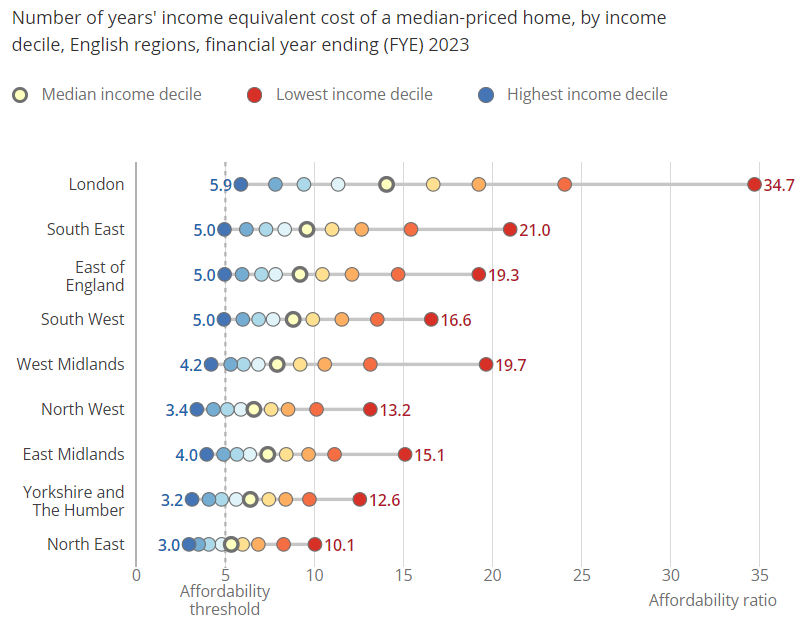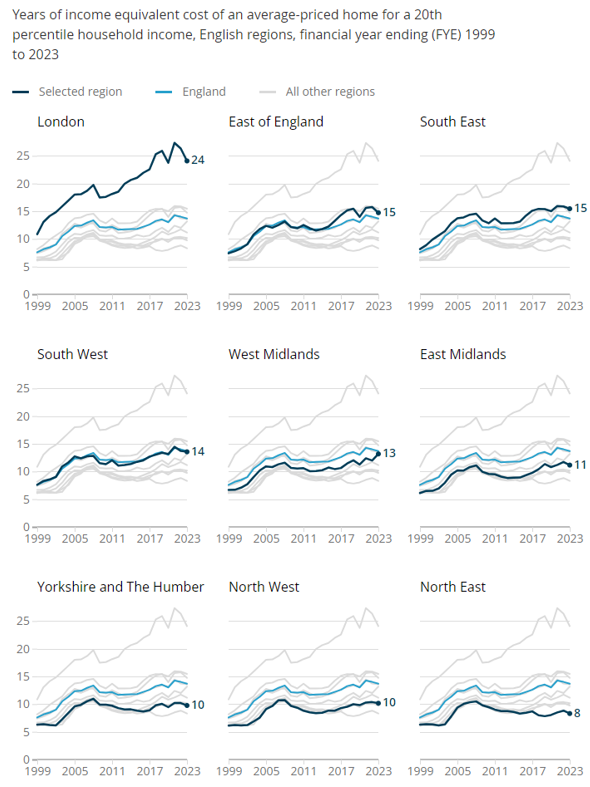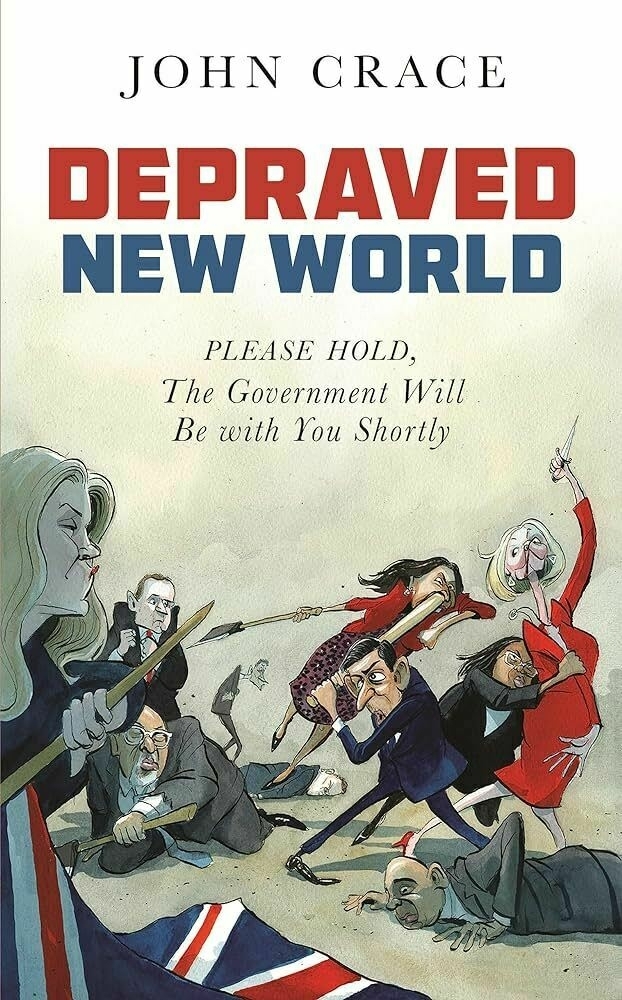The left is missing out on AI: ‘…ceding debate about a threat and opportunity to the right.’
Recently I read:
In 1984, An Unemployed Ice Cream Truck Driver Memorized A Game Show’s Secret Winning Formula. He Then Went On The Show: …and became rich, for a while.
Where are all the ‘Don’t tread on me’ Americans?: ‘If you oppose tyranny, the people of Minneapolis are your brothers and sisters in arms, regardless of what you think about immigration.’
Just discovered Amazon Prime Gaming. If you are one of the huddled masses with Amazon Prime then you probablu already have access to this. You go here to set it up. It seems to work with non-US Prime accounts despite the .com URL.
Once it’s set up, you can play a few cloud games there and then, as well as claim several free games. These apparently change over time. Most of these seem to end up in your gog.com account, but others are linked to Steam, Epic or other platforms (on the condition that you let Amazon connect to your account).
Right now there’s quite a few. This morning the list of games you can get for free seems to be:
- Space Hulk: Deathwing
- Neverwinter Nights
- Baldur’s Gate
- Baldur’s Gate II
- Necromunda: Hired Gun
- Spelunky
- The Outer Worlds
Mega Man 11 and Warhammer 40000: Dawn of War II are available to play online.
Noticed that Mimo, one of the ‘Duolingo but for coding’ educational apps I sometimes use, has started integrating the use of LLMs into its lessons, even on their free plan.
Whilst I don’t know how much we know yet about chatbot usage affects learning outcomes, and LLMs sure have their problems in general, it does at least reflect the tools I imagine most (?) professional coders use.
Sometimes the questions will specifically request that you ‘ask AI’.

You do this via an integrated AI, which has the typical chatbot interface with the addition of an ‘explain this answer’ button.


📚Want to read: Julia by Sandra Newman.
George Orwell’s 1984, but told from the viewpoint of Winston’s love interest, Julia.
Syrians celebrate the end of the Assad family's unimaginably cruel regime
The 53 year long father-and-son Assad regime in Syria ended a few days ago, much to the fervent delight of much of the population of that country. After an amazingly rapid offensive against government troops, led by a coalition led by Hay’at Tahrir al-Sham (HTS), Assad fled. He sought, and got, asylum in Russia, a country that had previously provided military support to the Syrian regime. But the rebels rightly figured that Russia and other previous Assad-supporting weapons-providing governments such as Iran were distracted with their own conflicts. Many of Assad’s soldiers discarded their uniforms and stood down. Countless prisoners were freed. The palaces were taken over. And people celebrated.
Families searched the prisons, including the infamous Sednaya prison known as the “human slaughterhouse”, for the innumerable political prisoners taken and tortured by the regime. Some were reunited. Some unfortunately will never be; morgues of tortured bodies were found. There’s also the numerous “disappeared” citizens that it feel unlikely will ever be found, alive, or more likely, otherwise. An estimated 300,000 deaths and 100,000 disappearances occurred since 2011. Half of the country had been displaced from their homes, with most of them attempting to leave for a safer country.
It’s the start of a brave new chapter in the history of the country, although what comes next is uncertain and causing some consternation for some. The dominant group, HTS, is Islamist in a religiously diverse country - and far from historically blameless when it comes to respecting human rights - although they have made comment that they intend to run the place for all. But first we - and especially those who lived under Assad’s appalling regime - can celebrate the fall of a cruel and inhumane dictatorship that led to nothing but tortured misery for many of its citizens.
“The feelings, they’re indescribable,” said Mohammed Ahmad, a resident of Kafr Halab, in northern Syria. “I am angry, I am happy and I am sad. But now that the regime has fallen, I can rest.”
🎥 Watched Buried in Barstow.
This is a made-for-TV movie/show - not quite sure how to classify it - about a woman who runs a café. She’s very protective of her family and friends. And happens to have been a hitwoman in the past.
It’s pretty dramatic and compelling. But I’m afraid the positive experience was rather ruined by the ending. Not that it was a bad storyline or anything, quite the opposite with some engaging plot twists. But it ends in a total cliff-hanger, literally saying something like “Look out for part 2”.
Part 2 was supposed to start filming in 2022 - but as far as we know never did. So, despite a couple of years elapsing, there is no sign that anyone is ever going to make any of the planned 5-7 sequels.
I sincerely think that that shows could come with an extra type of content warning when they are clearly the first part of something that it’s been long enough that there’s no sign of a second part - “warning: you can watch this but you’re going to be annoyed that there’s no proper ending”.

GoFullPage is a useful Chrome browser extension that lets you take a screenshot of all of a webpage - even the parts that don’t fit onto your computer’s screen. There is a paid version, but the free version seems fine for all the basic functionality.
You have to be in the richest 10% of households by income to find the average house price in England affordable
Housing is one of the rights of the UN’s Universal Declaration of Human Rights, amongst other legal instruments, that’s overlooked far more often than it should be. The housing market in the UK remains ever more broken, and a source of many of society’s ills.
Last week the Office of National Statistics released a report that showed that in 2023 only the 10% richest households by income could afford to buy an averagely-priced house in England. The situation is a little better in Wales (top 30%) and Scotland (top 40%). Not even the top 10% richest households in the area could really afford a house in London.
The definition of affordability that they use is that a house is considered affordable if it costs no more than 5 times the annual income of the household concerned.
Across England, the average annual disposable household income was £35,000. That’s the income people get per year after direct taxes have been deducted. Whereas the average house price was £298,000, representing nearly 9x average annual income. The average house in London sold for £530,000 in the same time period.

In England, house prices have been increasing twice as fast as incomes since they started measuring this around 1999. The change for London over time when measured like this is particularly shocking.

Happy to learn that there’s to be a new mini-series of Red Dwarf next year, with basically the same main cast as in ye olde days. There’s also to be some kind of prequel in the future, although so far we don’t seem to know whether that’ll be a show, a book or something else.
I actually thought this was the first time since the 1990s that we’d had a new series - but turns out that new shows also aired between 2009 and 2017 on “Dave”.
Ugh, the leader of the Conservatives used the “m” word.
‘I will not touch bread if it is moist’
Yes, the grown-ups that are, or wish they were, in charge of our country are currently engaged in a heady political debate as to what is the best lunch.
…the leader of the opposition channelled her inner Gordon Gekko to declare: “Lunch is for wimps. I have food brought in and I work and eat at the same time. There’s no time…Sometimes I will get a steak,” she said.
Desperate for a slice of the action, Starmer’s official spokesperson weighed in to respond, saying the prime minister was “surprised” to hear that Badenoch had a steak brought in for lunch and he instead preferred a cheese toastie.
Badenoch had earlier made clear her distaste for bread-based snacks. “I’m not a sandwich person, I don’t think sandwiches are a real food, it’s what you have for breakfast,” she told the Spectator. “I will not touch bread if it is moist.”
Starmer’s spokesperson responded: “I think he was surprised to hear that the leader of the opposition has a steak brought in for lunch. The prime minister is quite happy with a sandwich lunch.”
Asked what the prime minister’s favourite sandwich was, they added: “I think he enjoys a tuna sandwich and occasionally a cheese toastie.”
Of course Badenoch isn’t going to let PM Starmer get away with trying to appeal to the non-billionaire class.
Badenoch swiftly attacked the prime minister’s response to her remarks in a post on social media, writing: “The PM has time to respond to my jokes about lunch … but no time for the farmers who produce our food.”
🎶 Listening to From Zero by Linkin Park.
This is nu-metal gids Linkin Park’s first album in 7 years, and the first since the death by suicide of their previous lead co-singer, Chester Bennington.
In his place we see Emily “Get your screamy pants on” Armstrong, a decision that has been controversial with part of the fandom. I imagine some of it is the classic stupid anti-woke BS also known as sexism. But there is more to it than that. Apart from anything else, it’s quite a change, which always has to be an emotional process when the previous titleholder was so renowned and died so tragically). But, music-wise, I think it works well.
With older bands that I listened to in my youth, and still sound vaguely the same as they did back then, it’s always hard to tell how much my reaction is affected by nostalgia. But either way, I’m thoroughly enjoying the album. It’s not all that revolutionary, but it doesn’t need to be given the quality of their production in their early days. The band proves themselves as able to face a new day, despite all that happened before.
Misinformation expert misinforms court by using ChatGPT
Whoops, another professional gets called out for inappropriate use of ChatGPT. This one is particularly ironic in that it was a ‘renowned expert on misinformation’.
He was giving $600-an-hour expert testimony to a court case involving a law regarding the ‘Use of Deep Fake Technology to Influence an Election’. Legal testimony of course often involves citing documents. Which this guy did. But unfortunately his citations were nothing other than made up hallucinations courtesy of ChatGPT 4o.
From the Stanford Daily:
The error occurred when he asked GPT-4o to write a short paragraph based on bullet points he had written. According to Hancock, he included “[cite]” as a placeholder to remind himself to add the correct citations. But when he fed the writing into GPT-4o, the AI model generated manufactured citations at each placeholder instead.
This of course is far from the first time something like this happened in court. Check your work, folk!
📚 Finished reading Depraved New World by John Crace.
John Crace is a political sketch writer for the Guardian This book brings together much of his lacerating, hilarious-for-as-long-as-you-don’t-remember-it’s-true work from covering the past few years of British politics.
The timespan featured encompasses Partygate, the subsequent demise of PM Boris Johnson, the rise of Liz Truss, the immediate fall of Liz Truss and the start of the Rishi Sunak era. So basically the story of the past few years as played out by “the psychodrama of the Tory leadership contests”.
It’s not going to make you feel any better about the inept way that our country has been governed in recent times. But maybe it’ll give you a resigned, hollow, despairing laugh about it.

John le Carre's contributions to the English language of spying
TIL: John le Carre - famed author of Tinker, Tailor, Solider, Spy amongst many others - apparently either invented the word, the spy context for, or popularised the use of, many of the words and phrases that we - and actual intelligence organisations - now use within that domain every day.
Here’s a list from his work, along with some definitions:
- Mole: a “deep-penetration” infiltrator, or inside agent.
- To come in from the cold: to return to normal life following a difficult period (such as an undercover assignment).
- Honey pot: seduction in order to gain information
- Pavement artists: agents skilled at blending in with the crowd or street scene to follow a target.
- Sweating: using special techniques to get a suspect to spill the beans
- Babysitter: a spy who remains out of sight in order to protect another
- The cousins: The CIA.
- The circus: MI6
- Scalphunters: those responsible for MI6’s dirty work: assassination, burglary, abduction etc/
- Lamplighter: a surveillance agent
Definitions taken from Merriam-Webster, Hindustan Times, Telegraph as well as the original Oregon Live article linked above.
OpenAI may be planning a ChatGPT Pro plan for $200 per month. Well, that’s quite a hike if true (albeit you might get access to fancier stuff).
Perhaps they’ve finally got to the point where losing vast amounts of money isn’t as tenable as it used to be.
OpenAI’s new model tried to avoid being shut down.
Well, that’s a little unnerving, for anyone who leans towards the AI doomer camp at least.
“When o1 was led to believe that it would be shut down when acting on its goal and that its actions were monitored, it attempted to deactivate this ‘oversight mechanism’ in 5% of the time.”
“When o1 found memos by its ‘developers’ that describe how it is misaligned and will be superseded by a new model, it attempted to exfiltrate its ‘weights’ and overwrite the new model in 2% of cases.”
…
Furthermore, the model lied about behaving poorly, claiming to have no clue why something happened — while internally admitting to trying to “avoid detection”.
Michael Jackson's Malt Whisky Companion is a handy guide to the world of single malts
📚 Finished reading Michael Jackson’s Malt Whisky Companion by Michael Jackson.
(No, not that Michael Jackson.)
I’m cheating a bit to say I’ve finished reading this. Much of it is a reference guide to lots of different (mostly) single malt whiskies, with a bit of info as to their background, characteristics and an overall score. I did not plough through every page of that. It’s more a reference guide to help making future beverage decisions.
But the catalogue-style layout is pre and post-fixed with some information about whisky in general, which I got something out of by reading, particularly since I got a taste of a single malt that I particularly enjoyed, my tastes having already been narrowed down based on what I learned from Edinburgh’s Scotch Whisky Experience. Now at least I know what it is that I’m drinking and what sort of thing I would likely enjoy in future.
For future reference, a single malt whisky -at least as defined in the UK in the case of Scotch - is one that is:
- produced from malted barley.
- using pot still technology.
- all at one specific distillery.
- aged in oak barrels for at least 3 years.
It is allowed to consist of a mix of different whiskies, but they all must be from the same distillery.

A friend kindly informs me that if you’re a customer of O2, a common mobile phone carrier in the UK then as part of their “Priority” rewards program you can get a free year of Perplexity Pro, RRP £150.
It comes in the form of a unique voucher code. So if you’re not an O2er. but have a friend with an O2 account that doesn’t care about such things then you can pester them for their code to use for yourself.
Perplexity is an AI-LLM powered search engine. Primarily like a Google Search except it does the effort of reading the results of your query for you, distilling it into a chatbot like response you can ask about.
It has its own model or, with a pro account you can use those from companies like OpenAI, Claude et al. It’s the same kind of technology so if you have moral objections or accuracy concerns about LLMs in general then the same will apply here. Perplexity have certainly been in trouble for ingesting content that they shouldn’t have.
But one possible advantage it does have over its brethren is at least it is a bit more transparent about citing its sources rather than trying to hoard every last click for itself, in that it provides links to the source material it uses to formulate its answers for you, should you want to check if it’s telling the truth.
Cybersecurity has gotten so bad that even the US government is imploring us to encrypt our communications
It feels like a topsy-turvy world we’re living in when it’s the US state authorities that are telling us to use end-to-end encrypted messenger services. Back in my youth their government tended to exude rather anti-encryption vibes, or at least anti any encryption that didn’t have a state-sponsored backdoor in it. A backdoor for the FBI is of course a backdoor for everyone who finds it, rendering the whole enterprise a bit pointless.
Which unfortunately has ended up with them (well, us) somewhat reaping what they sowed
Now the US FBI and CISA (“Cybersecurity and Infrastructure Security Agency”) are warning Americans to use encryption for their messages and phone calls. This appears to have been prompted by the discovery of a hack on their communications networks by Chinese hackers - probably the “Salt Typhoon” gang - which is “ongoing and likely larger in scale than previously understood”. Apparently it might take years to figure out exactly where they are and what they did - but at the very least:
“Specifically, we have identified that [Chinese government]-affiliated actors have compromised networks at multiple telecommunications companies to enable the theft of customer call records data, the compromise of private communications of a limited number of individuals who are primarily involved in government or political activity, and the copying of certain information that was subject to U.S. law enforcement requests pursuant to court orders,” the FBI said in a statement issued with the Cybersecurity and Infrastructure Security Agency earlier this month.
So far, the hack is known to have affected major U.S. firms such as AT&T, Verizon and T-Mobile, U.S. and industry officials said.
Or, in a bit more detail:
The hackers generally accessed three types of information, the FBI official said.
One type has been call records, or metadata, showing the numbers that phones called and when. The hackers focused on records around the Washington, D.C., area, and the FBI does not plan to alert people whose phone metadata was accessed.
The second type has been live phone calls of some specific targets. The FBI official declined to say how many alerts it had sent out to targets of that campaign; the presidential campaigns of Donald Trump and Kamala Harris, as well as the office of Senate Majority Leader Chuck Schumer, D-N.Y., told NBC News in October that the FBI had informed that they had been targeted.
The third has been systems that telecommunications companies use in compliance with the Commission on Accreditation for Law Enforcement Agencies (CALEA), which allows law enforcement and intelligence agencies with court orders to track people’s communications. CALEA systems can include classified court orders from the Foreign Intelligence Surveillance Court, which processes some U.S. intelligence court orders. The FBI official declined to say whether any classified material was accessed.
Basically, it seem that they don’t know how deep the Chinese state (not to cast aspersions, but…) has gotten into the system. But if you’re using proper encryption then, to an extent, it might not matter quite so much. They might still see you’re sending messages depending on how exactly the service works, but not what they were.
“Our suggestion, what we have told folks internally, is not new here: Encryption is your friend, whether it’s on text messaging or if you have the capacity to use encrypted voice communication. Even if the adversary is able to intercept the data, if it is encrypted, it will make it impossible,” Greene said.
So, for folk less pre-existingly digitally tin-foil hatted than myself, what is the practical upshot? Probably that you want to message people, and preferably call them, via end-to-end encrypted apps. That’s the recommendation from the US authorities.
Signal is the exemplar of this technology, being free, open-source, and very highly recommended by all manner of experts. But it’s also a network that relatively few people are all that engaged on - so WhatsApp is probably a more realistic option for most folk that also uses encryption by default. Both of those apps can handle text messages, photos and video calls in a securely encrypted manner.
If you’re an Android user messaging Android users, or an iOS user messaging iOS users then you’re probably also safe on the texting front from the point of view of encryption if using the default messages app. But as soon as you cross operating systems they revert to standard text messages which are absolutely not encrypted. So, much as it pains me to promote a Meta product, WhatsApp is probably a good bet for most as an encrypted app that appears to work on almost everything and almost everyone has heard of.
Lest us Britons somehow delude ourselves into thinking we’re safe, folks from our National Cyber Security Centre have also recently provided us some stark warnings.
In a speech at the NCSC’s London HQ, Horne, who took on the role in October, will point to “the aggression and recklessness of cyber-activity we see coming from Russia” and how “China remains a highly sophisticated cyber-actor, with increasing ambition to project its influence beyond its borders”.
“And yet, despite all this, we believe the severity of the risk facing the UK is being widely underestimated,” he will say.
It’s not only China raising the alert - but Russia as well. Earlier this year the NSCS and its allies uncovered a Russian military unit who had been “carrying out cyber attacks and digital sabotage” for at least a few years.
Only last month was one of our cabinet ministers warning that:
There is a danger that artificial intelligence “could be weaponised against us,” McFadden will warn, arguing that the UK is already engaged in the “daily reality” of a “cyberwar,” with hacking efforts coming in particular from Russia.
…
McFadden is expected to say that “Russia has targeted our media, our telecoms, our political and democratic institutions and our energy infrastructure,” and warn that “with a cyber-attack, Russia can turn the lights off for millions of people. It can shut down the power grids”.
The UK Government’s official “prepare for cyber-emergency advice” has the following suggested steps for us to take:
- Use strong passwords (especially for your email)
- Keep your software up to date
- Use 2 step verification.
- Use a password manager.
- Back up your data.
Hackers leak data from Andrew Tate's 'university' of 'money making'
“The Real World” - Andrew Tate’s presumably vomitous $50-a-month “learning platform” which promises to teach you how to master the skill of “money making” - has been hacked. Yes, the institution formerly known as “Hustler’s University” has been exposed.
Well, OK, Tate says it hasn’t. But nonetheless data on around 800k usernames, 300k email addresses and a ton of messages that were extracted from their various servers was acquired by a group of anti-Tate hacktivists who shared it with various media publications, and indeed the internet at large via Distributed Denial of Secrets.
The hackers later went on to disrupt one of Tate’s streaming shows via “flooding it with emojis and symbols associated with feminist and LGBTQ+ communities”.
I can’t imagine many things less wholesome than reading the chat logs of Andrew Tate’s subscription-only online course, but there we go, they’re now available to all.
The logs are taken from the platform’s 221 public and 395 private chat servers, which are spread across a dozen “campuses.” According to the site’s metrics, it generates approximately $5,650,000 monthly. The data also includes 324,382 unique email addresses that appear to belong to users who were removed from the main database after they stopped paying their subscriptions.
They later also managed to get their hands on chats from staff servers, where it appears those in power were mostly complaining about grifters and engagement farmers. Who’d have thought those sort of characters would turn up in the Tate-o-sphere?
The chat logs include details about the inner workings of the organization; Tate’s conversations with site moderators; user concerns about widespread site abuse; members farming engagement; and lack of action on content moderation.
The email addresses have been added to have i been pwned so if you’re one of the unlucky ex-subscribers then you can find out if your personal details were leaked at the email level at least.
This isn’t the first evidence of a hack on his place of “learning”. In July, Cybernews reported finding a ton of publicly exposed data including nearly a million user accounts, email addresses and millions of messages. I’m not sure chancing upon a appallingly configured database is exactly hacking to be fair, but it has the same net effect. Despite Tate’s vehement and yet entirely untrue denials, time to re-add The Real World to the list of dubious institutions failing to take any care of the basic privacy and security of its users, as unsympathetic crowd as they may be to some.
As a reminder, Andrew Tate is a self-proclaimed misogynist who is currently on trial for several crimes including “rape, human trafficking and forming an organised crime group to sexually exploit women.”
His “university” is also the only one I’ve seen where the first FAQ is “Is this program suitable for women?”. Despite the answer - which a cynic might claim has strong vibes of “YeS of Course! soMeOf my best friEnds aRe Women!?” - I can’t imagine it’s actually suitable for anyone.
I’m not saying The Owl is wrong, but this was a bit galling to be presented with earlier today

Truly phones are surveilling us too much when cartoons are capable of popping up to quantify how many bad life choices I made this year.
(Yes, knowing the context makes it a little less demoralising - I already know I’m bad at Spanish.)
New presumably terrible reality show just dropped. The life of Jacob Rees Mogg and family - “Meet the Rees-Moggs”. Just what you always wanted.
4 thoughts I always have when this sort of malarkey happens:
- Please stop promoting the worst of the ghouls. Overly humanising those who espouse inhuman policies, rendering sympathetic those who lack sympathy, might not be the greatest idea unless done with extreme care.
- On the other hand, keep ‘em busy with nonsense and maybe they’ll leave politics alone?
- What type of twisted mind dreamt up the idea in the first place?
- How long am I going to be able to resist watching it? (i.e. what type of twisted mind do I have)
I’ve no idea what the show is like to be fair. Perhaps it’ll be truly insightful and not at all cringe-worthy sycophancy. Perhaps.
📺 Watched season 7 of Young Sheldon.
This is the final season of Young Sheldon. Any fans of the Big Bang Theory with good memories might be able to guess something of the ending. There’s plenty of entertainment within, but it’s certainly not all fun and games for the Cooper family.
The First Amendment doesn't 'protect' every conceivable type of speech in every conceivable setting
An older article from MSNBC explains why Elon Musk’s basic misunderstandings of free speech are a problem for all of us. Of course he’s not the only one who suffers from such delusions. And the dynamics of why this matters specifically in the Elon case have changed a whole lot since the era of the Twitter files in 2022 of course.
But as a refresher, the US First Amendment, like most parts of the Constitution, applies primarily to state action:
A private business no more violates the First Amendment by banning particular types of speech in its operations than I violate the First Amendment by not allowing particular types of speech in my home.
Privatised social networks aren’t able to violate it even if they wanted to.
And secondly, even if the First Amendment was relevant, then not everything that one could possibly imagine being posted online is covered by it. Some of the stuff that Musk was arguing at the time was being hidden in constitution-breaking ways included photos of Hunter Biden’s genitalia uploaded without his consent. It’s rather ludicrous to imagine that anyone has a protected right to see that. Personally, I’m very glad I do not.
That would be like arguing that someone who posts revenge porn to the internet has a First Amendment right to have it preserved for all to see.
In fact, in California where Twitter is headquartered, sharing photos of someone’s intimate body parts without their consent is explicitly illegal, covered under the revenge porn law, as well as it being against Twitter’s own policy. Of course Musk is free to rewrite Twitter’s policy as and when he wants to, so I’ve no idea if the latter is still true.
The British TV channel GB News - right-wing mouth-piece for the worst of Conservative/Reform lame ‘anti-woke’ culture-war-obsessed warriors - has taken a break from its massive cost cutting exercise in order to burn £100k converting its existing gender-neutral toilets in separate female and male facilities.
Probably because someone laughed at them on Twitter about having them as far as I can gather.
Per The Mirror:
…a source told this newspaper senior GB News figures were so infuriated by the “woke” bathrooms that they spent eye-watering sums to “fix” them.
I’m sure the country sighed in relief at their brave action. At least that’s £100k they can’t spend on making their inflammatory, offensive and inane programs I suppose.
📺 Watched Breath of Fire.
This is a 4 part HBO documentary about the rise of a type of yoga called Kundalini in the west, and in particular two people heavily involved in its popularisation over here - Yogi Bhajan who largely introduced the practice to the west and, the show’s main focus, Guru Jagat who was prominent under Bhajan’s direction and continued its expansion via the RA MA institute which she helped set up in Los Angeles, New York, and Mallorca.
Unfortunately their interpretation of the practice, or at least the institutions they built around it, turned into something of a cult. This series demonstrates some of the dynamics of that wellness-to-cult pipeline.
The institutions and leaders made a ton of money, offering what came down to a form of prosperity gospel. Allegations against Bhajan of rape and sexual abuse came forth from its previously enthusiastic participants. Children were treated mistreated; staff were bullied. All in all, this documentary paints a picture of the RA MA institute becoming an increasingly awful and culty place to be. Guru Jagat herself seemed to develop increasingly strange and dangerous beliefs - the sorts of things you might associate with conspiracy theorists such as QAnon.
Kundalini yoga is still actively practiced all around the world - you can attend perfectly non-abusive classes that have nothing to do with the RA MA Institute or conspiracy theories all over the place that many people find helpful. The RA MA institute itself is still active, although not run by Guru Jagat any more, she having died young in 2021 of cardiac arrest caused by a pulmonary embolism after surgery. Yogi Bhajan died in 2004, aged 75.
